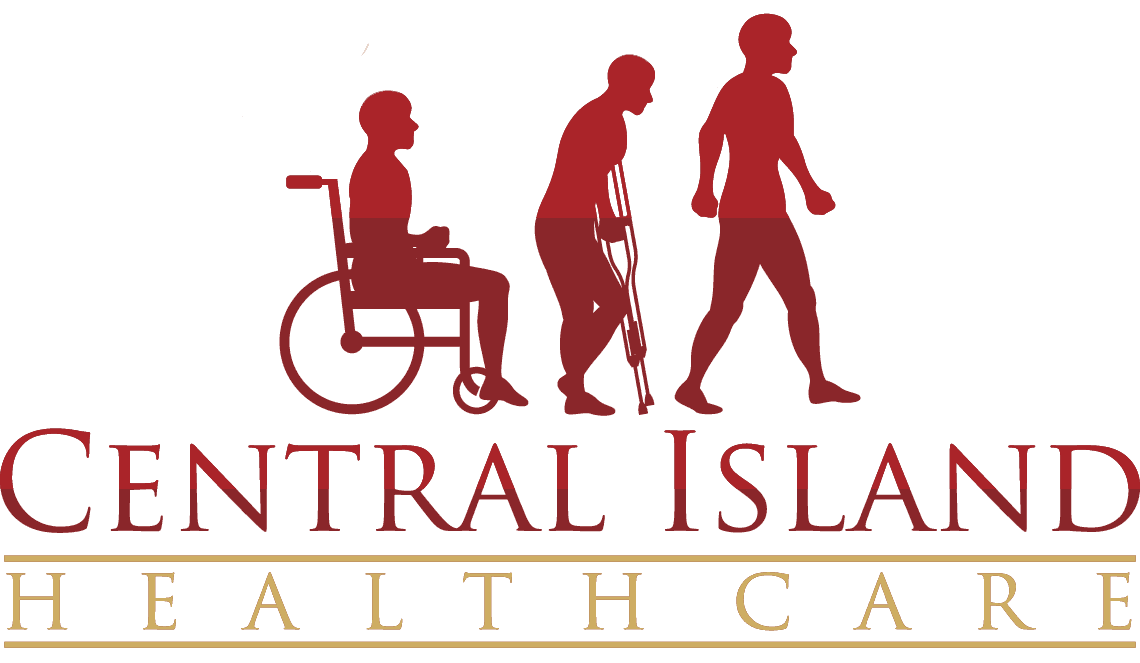Please call Admissions at Ext 126 for a virtual tour.
Residents may receive visitors 7 days without appointment between 1pm-7pm. Until further notice, NYSDOH requires valid proof of COVID-19 testing prior to visitation. Two days prior for PCR test or one day for Rapid test.
Visitors must comply with all posted infection control rules. We will continue to monitor DOH and CDC guidance.
Blog
Welcome to Central Island Healthcare
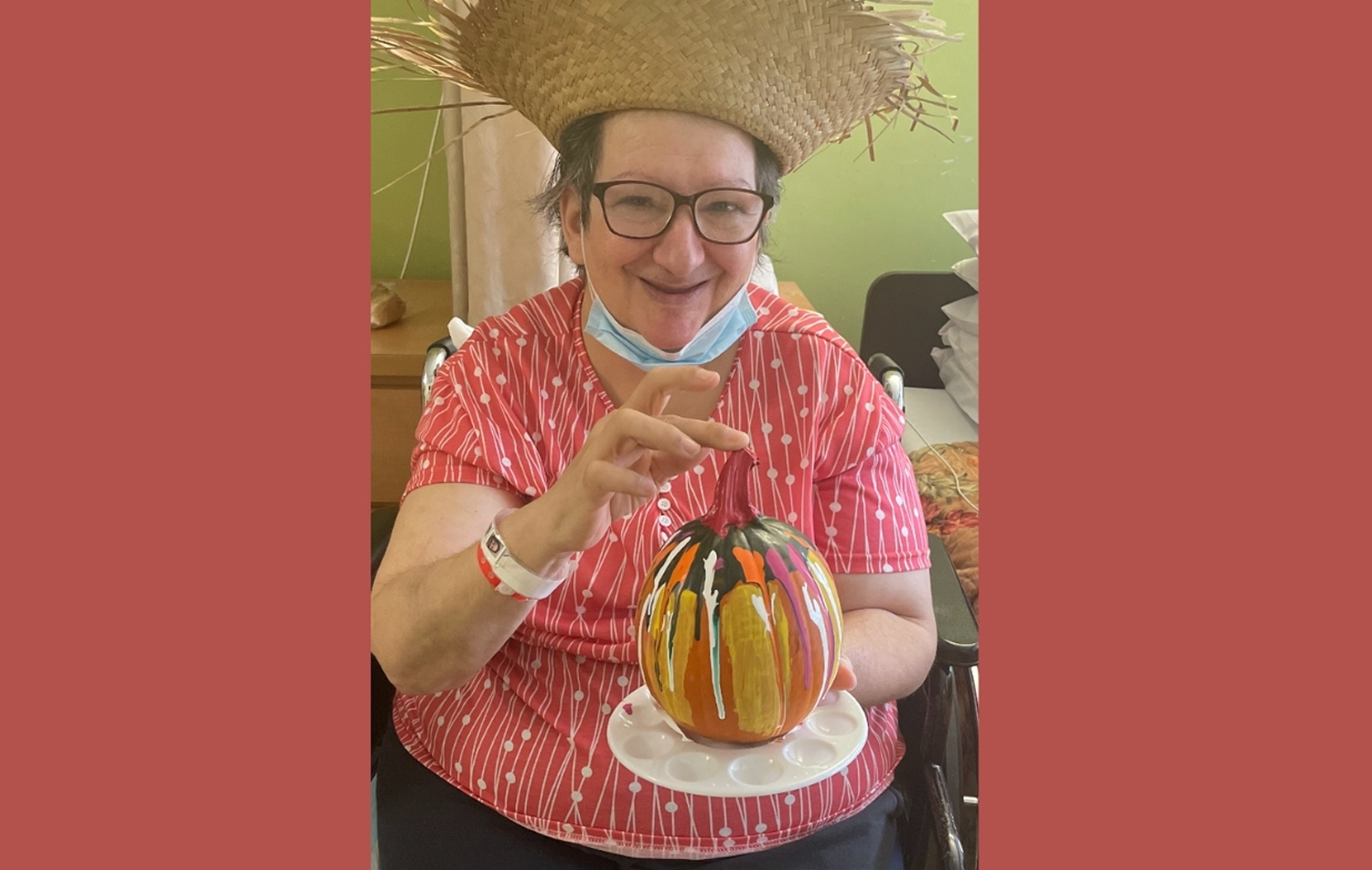
As the years roll by, one of the most treasured aspects of our well-being is cognitive health. Our ability to think, reason, remember, and learn is something that should never be taken for granted, especially as we age. Cognitive health plays a pivotal role in our overall well-being, and it's particularly significant for seniors. At Central Island Healthcare, we understand the profound importance of preserving cognitive function in our elderly residents, and we are committed to offering a wide array of activities and programs to support their cognitive wellness.
The Significance of Cognitive Health
Cognitive health encompasses a wide range of mental abilities, from the basic function of memory to the complex skills of problem-solving and decision-making. It is not solely about intelligence; rather, it concerns our ability to navigate the world around us, make informed choices, and engage in meaningful social interactions. Let's delve into why cognitive health is so crucial for seniors:
Impact on Overall Well-being
The preservation of cognitive health directly influences an individual's overall well-being. Cognitive decline can lead to feelings of frustration, isolation, and dependence, which in turn can significantly diminish the quality of life. In contrast, maintaining cognitive function promotes independence, confidence, and a higher sense of purpose.
Better Quality of Life
Seniors who possess intact cognitive abilities are better equipped to continue enjoying the activities they love, maintain their social connections, and sustain self-sufficiency for more extended periods. This independence is closely tied to an improved quality of life.
Brain-Boosting Activities
Central Island Healthcare is deeply committed to the well-being of its residents, and this extends to the preservation of cognitive health. We offer a rich variety of brain-boosting activities designed to stimulate cognitive function and keep minds active and agile. Here are some of the engaging activities that our residents can participate in:
1. Brain Teasers and Puzzles
Sudoku, crossword puzzles, and riddles are excellent ways to challenge the mind and enhance problem-solving skills. These activities are readily available for residents to enjoy at their own pace, providing mental stimulation while fostering a sense of accomplishment.
2. Educational Workshops
We organize a series of workshops covering a wide spectrum of subjects, from history and science to art and literature. Lifelong learning is a powerful way to keep the brain sharp and engaged. These workshops not only provide new knowledge but also encourage interaction and discussion among residents, promoting social engagement.
3. Physical Exercise
Regular physical activity isn't just beneficial for the body; it's also essential for cognitive health. Exercise increases blood flow to the brain, promoting the growth of new blood vessels and brain cells, which can improve memory and cognitive function. At Central Island Healthcare, we offer a range of physical activities suitable for seniors, including gentle yoga, tai chi, and walking groups.
Memory Care Programs
For residents with specific cognitive challenges, such as dementia or Alzheimer's disease, Central Island Healthcare offers specialized memory care programs. These programs are designed to provide personalized support tailored to the unique needs and challenges of individuals with cognitive impairments. Our memory care services include:
1. Personalized Care Plans
Each resident with cognitive impairment is evaluated by our team of experts, and a personalized care plan is developed. These plans are crafted to address the specific cognitive and emotional needs of each individual, ensuring they receive the best possible care and support.
2. Sensory Stimulation
Sensory stimulation activities are an integral part of our memory care programs. These activities, such as aromatherapy and tactile exercises, are designed to engage the senses, promote relaxation, and improve overall well-being. Sensory stimulation can help residents reconnect with their surroundings and enhance their cognitive function.
3. Supportive Environment
Our dedicated memory care unit provides a safe and comfortable environment for residents with cognitive impairments. This environment is designed to reduce stress and anxiety while promoting a sense of security and belonging. Our trained staff members are skilled in providing compassionate care and assistance, ensuring that residents live with dignity and receive the attention they require.
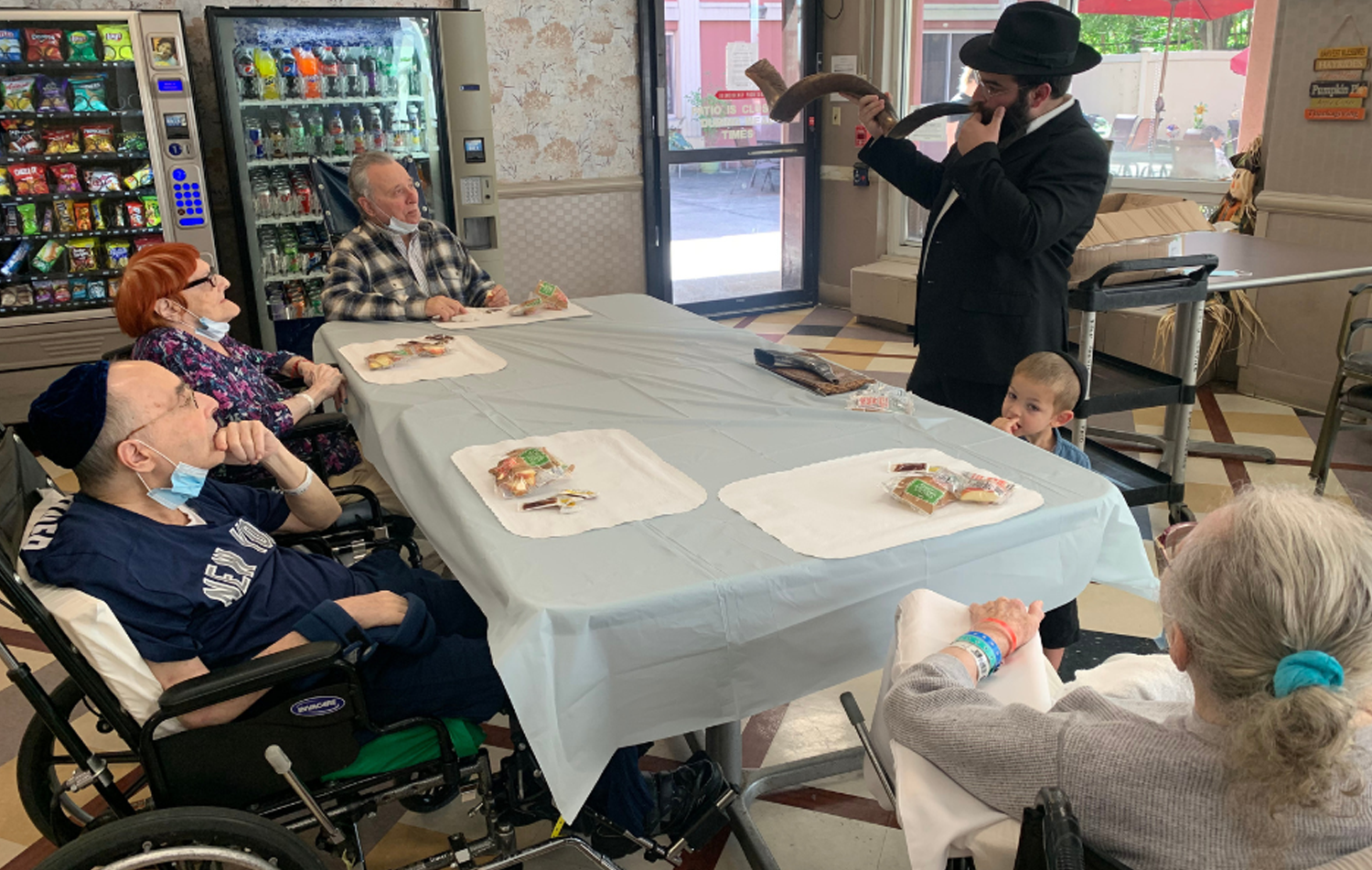
Life is a beautiful journey, replete with joys, challenges, and an array of memorable moments. For those in the later stages of life, these moments take on an even greater significance, and it becomes vital to cherish them. At Central Island Healthcare, we understand the profound importance of special events and milestones in the lives of our residents and their families. Our commitment to providing exceptional care extends far beyond addressing medical needs; it encompasses celebrating life's beautiful moments. In this comprehensive blog post, we will delve into the rich tapestry of celebrations and events that define the culture of Central Island Healthcare.
The Importance of Celebrations in Senior Care
The notion of celebrations isn't merely about indulging in festivities; it is an integral aspect of enhancing the quality of life for our residents. Special events and milestones offer a sense of purpose, belonging, and fulfillment, substantially boosting residents' emotional well-being. These moments create lasting memories and foster deep, meaningful relationships among our residents, staff, and families. Celebrations bring forth smiles, laughter, and an unmistakable sense of fulfillment to our community.
For many seniors, transitioning to a care facility can be a daunting prospect. However, the prospect becomes far more inviting when they know they are entering a community that values and actively engages in celebrations, recognizing the vital role they play in enhancing the overall well-being of the residents.
Monthly Calendar of Events
Our monthly calendar at Central Island Healthcare is a testament to our unwavering commitment to joy, engagement, and holistic well-being. Each month, we meticulously plan an array of activities and events that cater to the diverse interests and preferences of our residents. From art workshops and musical performances to gardening clubs and wellness classes, our calendar is a colorful mosaic of experiences, designed to cater to the unique tastes and aspirations of our residents.
These events empower our residents to pursue their passions, explore new hobbies, and connect with like-minded individuals. The shared experiences cultivated through these events forge deep connections among our residents, creating an enriching and vibrant community where each day brings forth new opportunities for growth and fulfillment.
Resident Birthdays and Anniversaries
Birthdays and anniversaries mark significant milestones in everyone's life. At Central Island Healthcare, we recognize the profound importance of these occasions, and we endeavor to celebrate them with the warmth and personal touch they deserve. Our dedicated team works tirelessly to organize special gatherings, replete with decorations that transform our facility into a haven of celebration. Delicious cakes and heartfelt wishes are par for the course, creating an atmosphere where residents feel cherished and valued.
It's during these celebratory moments that residents are surrounded by friends and family who share in their happiness, creating a sense of belonging that is at the heart of our community. The personal connections and emotional bonds forged during these celebrations often become cherished memories that residents carry with them, enriching their lives in profound ways.
Holiday Celebrations
Holidays at Central Island Healthcare are nothing short of magical. Our facility undergoes a breathtaking transformation, adorned with decorations that evoke the spirit of the season. We enthusiastically embrace the themes of each holiday, creating an environment where residents can fully immerse themselves in the festivities.
From Halloween costume parties that spark laughter and creativity to Thanksgiving feasts that bring warmth and togetherness, our holiday celebrations are designed to encapsulate the essence of each occasion. Christmas, in particular, is a time of unparalleled joy and magic at our facility. Our halls resonate with the sounds of carolers, and our dining areas are adorned with twinkling lights and festive decor. Residents and their families come together to create cherished memories, making Central Island Healthcare feel like a second home, imbued with love and joy.
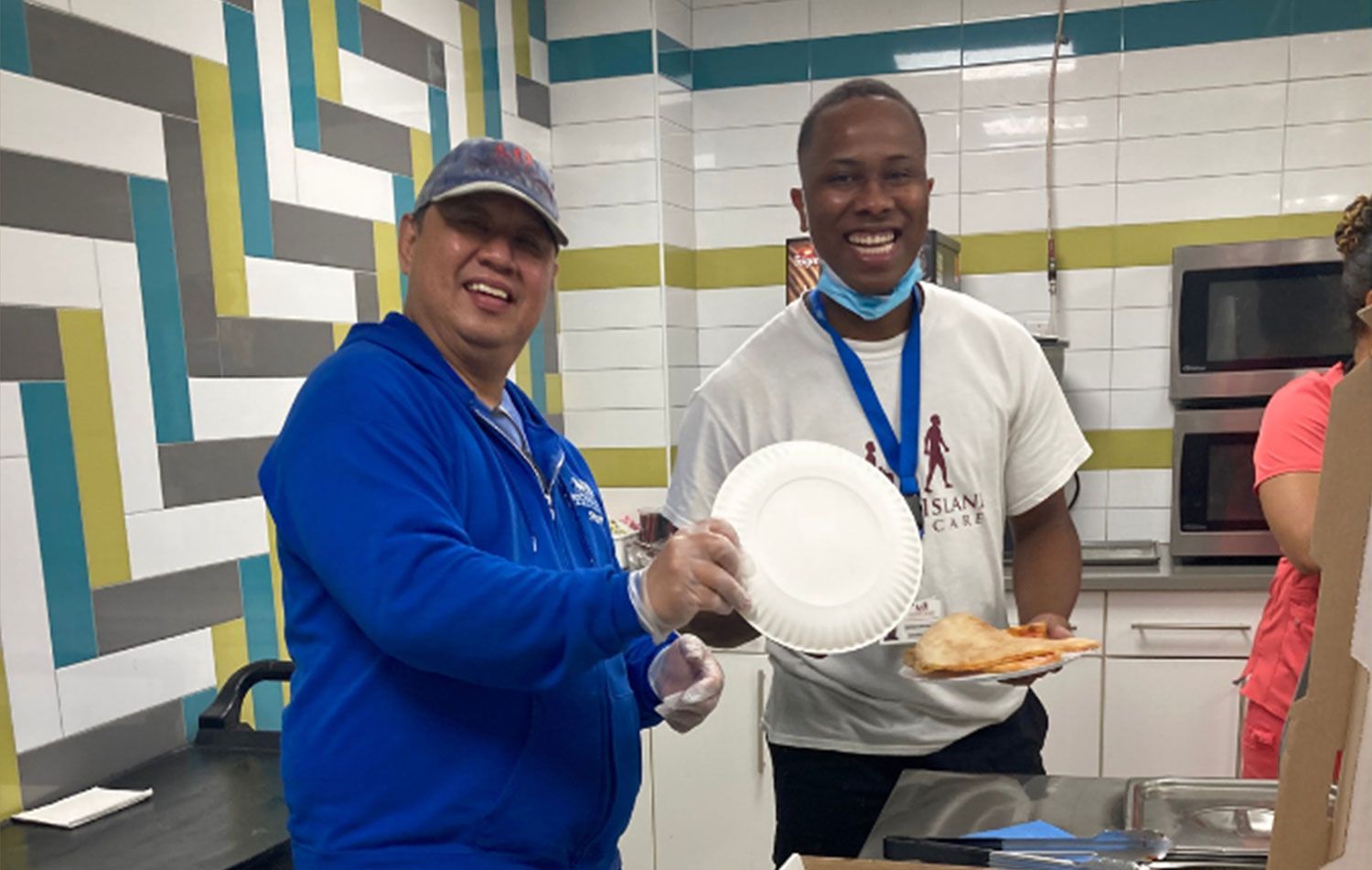
Nutrition and Dining Experience for Seniors at Central Island Healthcare
As we age, our nutritional needs change, and a well-balanced diet becomes increasingly essential to maintaining good health and overall well-being. At Central Island Healthcare, we understand the vital role nutrition plays in senior health, and we are committed to providing our residents with not only delicious but also nutritious meals.
The Role of Nutrition in Senior Health
Nutrition is a cornerstone of good health, and this holds especially true for seniors. A balanced diet provides the necessary nutrients, vitamins, and minerals that older adults need to maintain their physical and mental health. Proper nutrition is vital for a robust immune system, managing chronic conditions, and enhancing cognitive function. It also contributes to a higher quality of life by ensuring seniors have the energy and vitality to engage in activities they enjoy.
As we age, our bodies undergo various changes. These include a decrease in metabolism, changes in taste and smell perception, and alterations in the absorption of certain nutrients. Consequently, the nutritional requirements of seniors can differ significantly from those of younger adults. Seniors may require fewer calories, but they still need a diet rich in essential nutrients.
Central Island Healthcare's Dining Services
At Central Island Healthcare, we take senior nutrition seriously. We believe that nutritious meals can be delicious, and we're dedicated to providing a dining experience that meets the highest standards. Our team of experienced chefs and nutritionists collaborates to create menus that are not only tasty but also nutritionally balanced, prioritizing fresh, seasonal ingredients.
We understand that providing seniors with a diet that meets their nutritional needs while also being appealing can be challenging. That's why our dining services are designed to cater to the specific requirements and preferences of our residents.
Variety and Choice:
We understand that every resident has unique tastes and dietary preferences, so we offer a variety of menu options. This includes vegetarian, vegan, gluten-free, and low-sodium choices. By offering diverse options, we ensure that residents have a range of flavors and textures to choose from, making mealtime an enjoyable experience.
Regular Menu Reviews:
We don't rest on our laurels. We understand that dietary recommendations and preferences can change over time. As such, we regularly review our menus to ensure they align with the latest nutritional guidelines and resident feedback. This ensures that our meals are always up to date and in line with the latest nutritional research.
Special Occasions:
We celebrate special occasions and holidays with specially themed menus. These special meals are not only delicious but also create a sense of festivity and community within our facility. It's a time for residents to come together and enjoy unique culinary experiences. From summer BBQs to anniversary celebrations and birthday dinners, Central Island Healthcare has a plan for every occasion.
Personalized Meal Plans:
We recognize that some residents may have specific dietary needs or medical conditions that require dietary modifications. Our nutritionists work closely with healthcare providers to create personalized meal plans that meet these requirements. This ensures that residents with diabetes, heart disease, allergies, or other medical conditions receive meals that support their health.
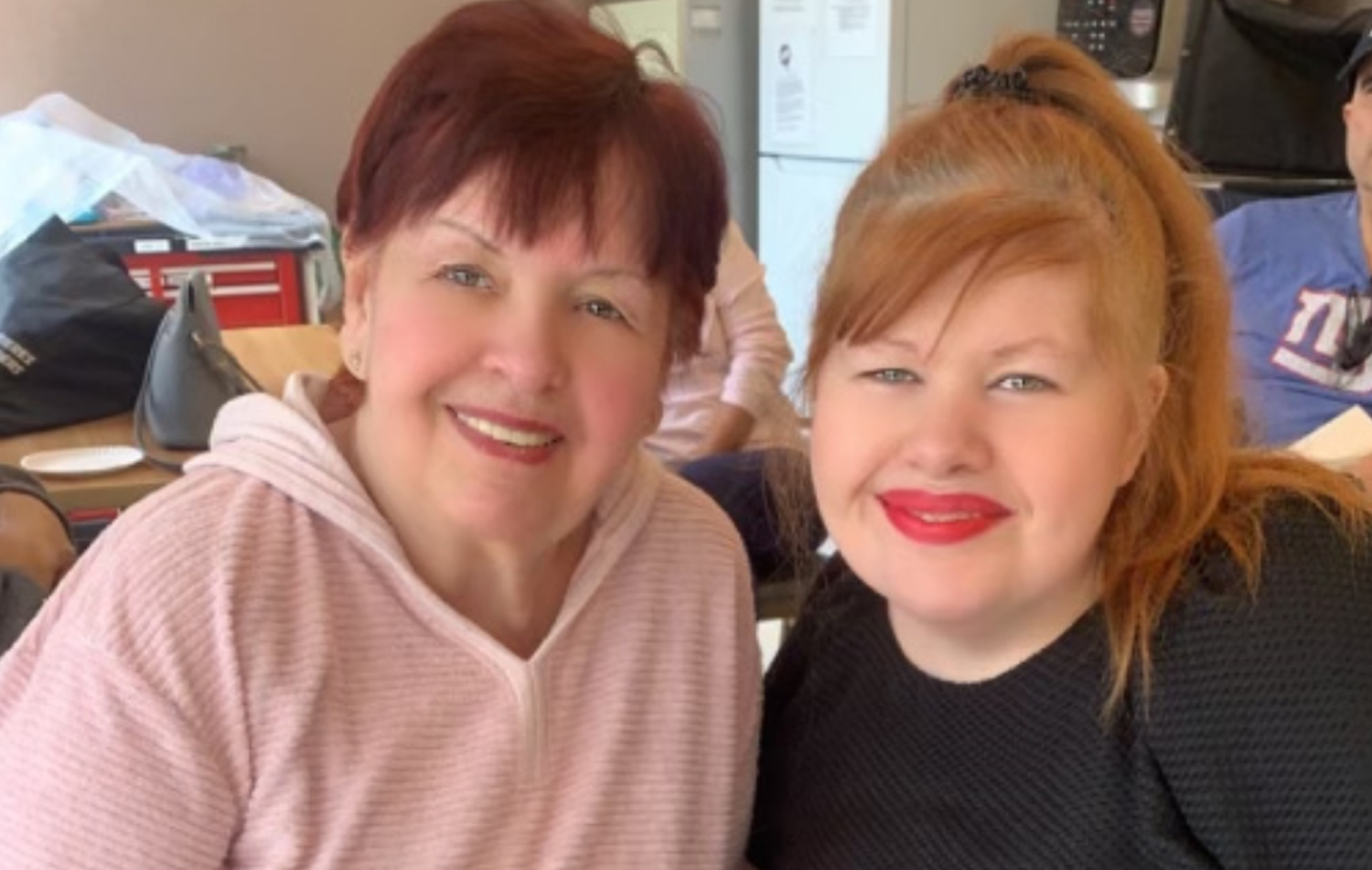
Introduction
As the journey of life progresses, there often comes a time when the transition to senior living becomes a topic of discussion within families. While it can be a difficult and complex decision, recent advancements in senior care have led to remarkable improvements in the quality of life for residents in nursing homes. At the forefront of this evolution is Central Island Healthcare, an exemplar in senior care that has taken a comprehensive and compassionate approach to make transitioning to senior living a seamless and confident experience for all involved parties.
Addressing Common Concerns with Compassion
In the heart of every family member lies a web of concerns and uncertainties when considering a nursing home for their beloved seniors. The apprehension about the quality of care, the perceived loss of independence, and the genuine fear of loneliness are all valid emotions that can cloud the decision-making process. At Central Island Healthcare, these concerns are not dismissed but rather addressed with an empathetic and informed approach. Our longstanding commitment to transparency and personalized care serves as the cornerstone of our efforts to alleviate these concerns, empowering families to make decisions that are both informed and in the best interests of their loved ones.
Central Island Healthcare's Comprehensive Transition Approach
One of the key differentiators that sets Central Island Healthcare apart is its dedication to ensuring a smooth and holistic transition for its residents. It recognizes that moving into a senior living facility can be an emotionally charged and daunting experience, potentially leading to feelings of disorientation and vulnerability. In response, Central Island Healthcare has meticulously devised a multidisciplinary team consisting of medical professionals, social workers, and dedicated support staff. This team works in tandem with the residents and their families to co-create individualized care plans that are not only rooted in medical requirements but also deeply attuned to personal preferences, social dynamics, and emotional needs.
Personalized Care Plans and Supportive Adjustment
A one-size-fits-all approach holds little ground in the realm of senior care. Central Island Healthcare truly shines by crafting personalized care plans that are adaptive and flexible, mirroring the unique journey of each resident. Recognizing that the adjustment period can be one fraught with anxiety and apprehension, the compassionate staff at Central Island Healthcare goes above and beyond to provide emotional support and gentle guidance. This approach not only guarantees physical well-being but also places paramount importance on safeguarding the mental and emotional well-being of residents during this transition.
Open Communication: The Foundation of Trust
The power of effective communication cannot be overstated, especially in the context of the relationship shared between nursing home staff, residents, and their families. Central Island Healthcare understands this implicitly and prioritizes open, transparent, and empathetic communication as the bedrock of trust. By providing regular updates about a resident's well-being and actively involving families in decision-making processes, a profound sense of comfort and reassurance is cultivated.
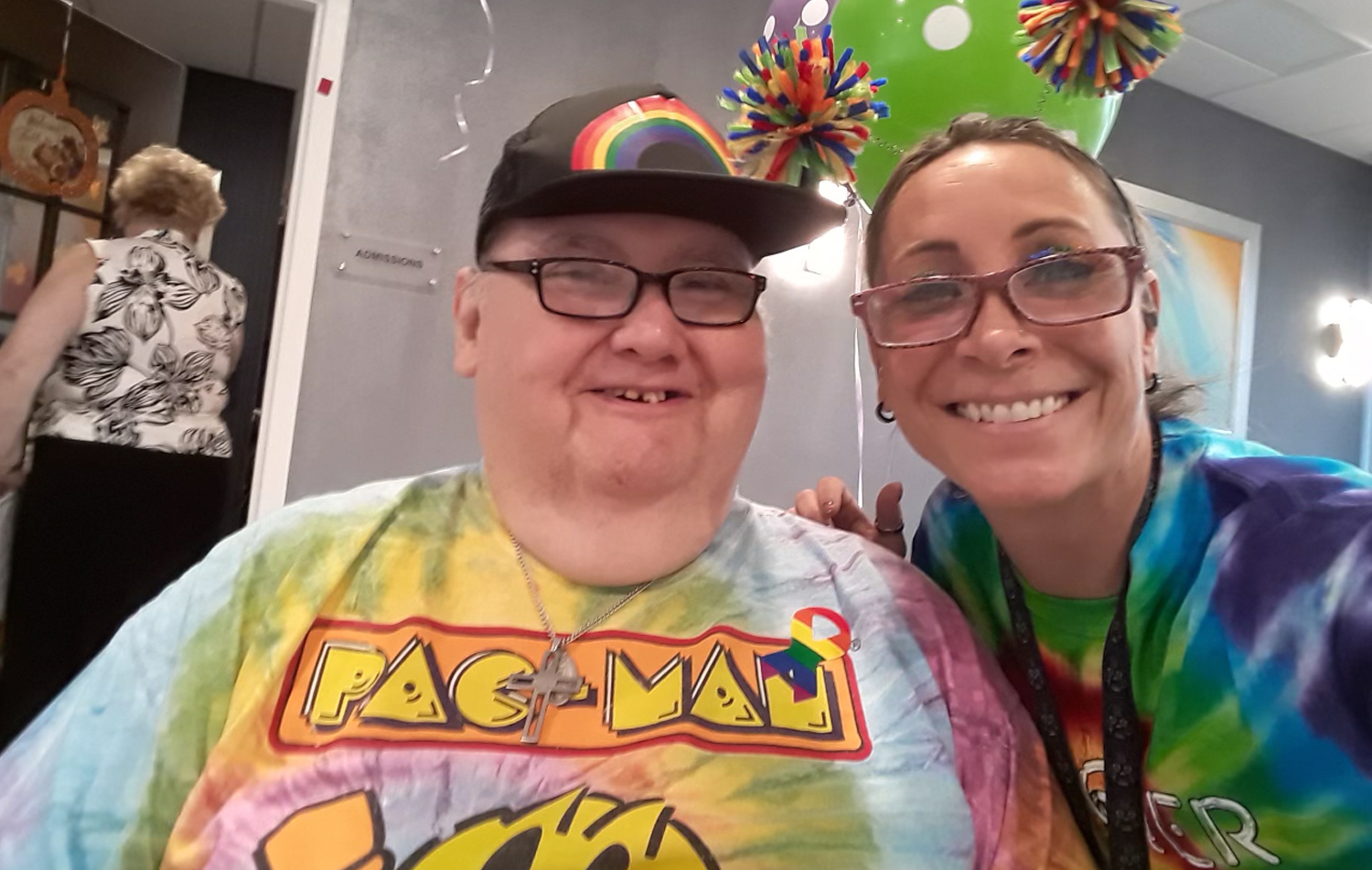
Introduction
Central Island Healthcare has established itself as a beacon of excellence in the realm of healthcare, setting a benchmark for prioritizing residents' well-being. Beyond medical treatments and therapies, Central Island Healthcare recognizes the paramount importance of fostering an environment that nurtures emotional and physical health. In this comprehensive exploration, we delve into the countless ways Central Island Healthcare has meticulously crafted a comfortable and supportive haven for its residents, digging into the profound impact of thoughtful design, accessibility, and personalized touches.
The Impact of the Physical Environment on Residents' Well-being
Scientific studies and anecdotal evidence alike attest to the profound influence of the physical environment on an individual's overall well-being. At Central Island Healthcare, this understanding is foundational. The organization has embraced the notion that an inviting and well-considered space can have a remarkable impact on emotional states, reducing stress and anxiety while catalyzing the healing process. By seamlessly integrating the principles of architecture and psychology, Central Island Healthcare has transformed its physical premises into a sanctuary of solace and rejuvenation.
Thoughtful Design and Layout for Mobility and Safety
A fundamental aspect of Central Island Healthcare’s approach lies in its commitment to designing an environment that not only pleases the eye but also promotes mobility and safety. Wide, unobstructed hallways, strategically positioned handrails, and abundant natural lighting serve as cornerstones of Central Island Healthcare design philosophy. These features contribute to an atmosphere that not only empowers residents to move freely but also significantly reduces the risk of accidents. By fostering an ambiance of confidence and autonomy, Central Island Healthcare's design choices directly impact residents' physical health and emotional well-being.
Promoting Connection through Common Areas and Private Spaces
Central Island Healthcare distinguishes itself by appreciating the delicate balance between communal and private spaces. The carefully planned common areas encourage organic interactions among residents, forging deep connections and combating feelings of isolation. Be it sharing stories in cozy lounges or engaging in communal activities, residents find ample opportunities for social engagement. Simultaneously, Central Island Healthcare places significant emphasis on private spaces – havens of tranquility where residents can find solitude, introspection, and respite. This synergy between shared and personal spaces creates an ecosystem that caters to the diverse emotional needs of the residents.

Introduction
At Central Island Healthcare, we are not just a nursing home; we are a sanctuary of care, compassion, and holistic well-being. Our core ethos revolves around providing not only exceptional medical attention but also a warm and empathetic environment that becomes a haven for our cherished residents. In this comprehensive exploration, we delve deep into the heart of our approach, shedding light on the significance of our skilled and empathetic staff, the meticulous qualifications and training they possess, their pivotal role in the lives of our residents, our comprehensive health management strategies, the importance of regular medical check-ups, the benefits of having healthcare professionals on-site, and the diverse range of activities we offer to enhance the physical and mental well-being of our residents.
Skilled and Compassionate Staff: The Backbone of Exceptional Care
Behind every successful healthcare facility stands a dedicated team of professionals who go above and beyond to ensure the well-being of its residents. At Central Island Healthcare, our staff members are more than just professionals; they are caregivers with a genuine passion for enriching lives. The significance of our skilled and compassionate staff cannot be overstated. Every member of our team is carefully selected, not only for their qualifications but also for their unwavering commitment to making a positive impact on the lives of our residents. Their empathy and compassion set the tone for the atmosphere within our community, fostering a sense of belonging and trust.
Qualifications and Training: Elevating Care Standards
The cornerstone of delivering top-notch care lies in the qualifications and training of our staff. We take immense pride in the diversity of expertise that our caregivers bring to Central Island Healthcare. From registered nurses with specialized knowledge to licensed therapists with a deep understanding of rehabilitation, and experienced aides who provide invaluable support, each team member contributes a unique skill set that collectively ensures the well-rounded care of our residents.
Our commitment to elevating care standards is reflected in the rigorous training our staff undergoes. Continuous education and skill enhancement are not just encouraged – they are integral to our approach. This commitment ensures that our residents receive care that is not only rooted in best practices but is also adapted to the ever-evolving landscape of healthcare.
Role in Residents' Lives: Beyond Medical Attention
At Central Island Healthcare, we understand that exceptional care transcends the realm of medical attention. Our staff members play multifaceted roles in the lives of our residents. They are companions who lend a listening ear, friends who share stories and laughter, and pillars of emotional support during both moments of triumph and times of challenge. This holistic approach to care is what sets us apart – the knowledge that fostering emotional well-being is just as vital as addressing physical health.
Our staff's genuine concern and attentive approach create an atmosphere of trust and camaraderie. They invest time to build relationships, understand individual preferences, and tailor their care accordingly. This personalized touch empowers residents to not only thrive physically but also emotionally, fostering a sense of purpose and connection.
Comprehensive Health Management and Regular Check-ups
Our approach to health management is founded on the principles of preventive care and proactive measures. We believe that regular medical check-ups are essential to maintaining the well-being of our residents. Our healthcare professionals conduct thorough assessments, monitor health indicators, and promptly address any concerns that may arise. This proactive approach not only ensures early detection and intervention but also grants peace of mind to both residents and their families.
By taking a holistic view of each resident's health, we can address potential issues before they escalate, leading to better outcomes and improved quality of life. This comprehensive health management approach is a testament to our commitment to the well-being of those entrusted to our care.
On-Site Healthcare Professionals: Immediate Access to Expertise
The presence of dedicated healthcare professionals on-site brings a multitude of benefits that extend far beyond convenience. Immediate access to medical expertise means that residents' needs are attended to promptly, without unnecessary delays. This presence not only fosters a sense of security but also facilitates effective communication between staff, residents, and families.
Whether it's a minor concern or a health-related question, residents and their families can rest assured that answers are just a few steps away. This accessibility to healthcare professionals creates an environment where transparency and communication thrive, enabling families to actively participate in the care journey of their loved ones.
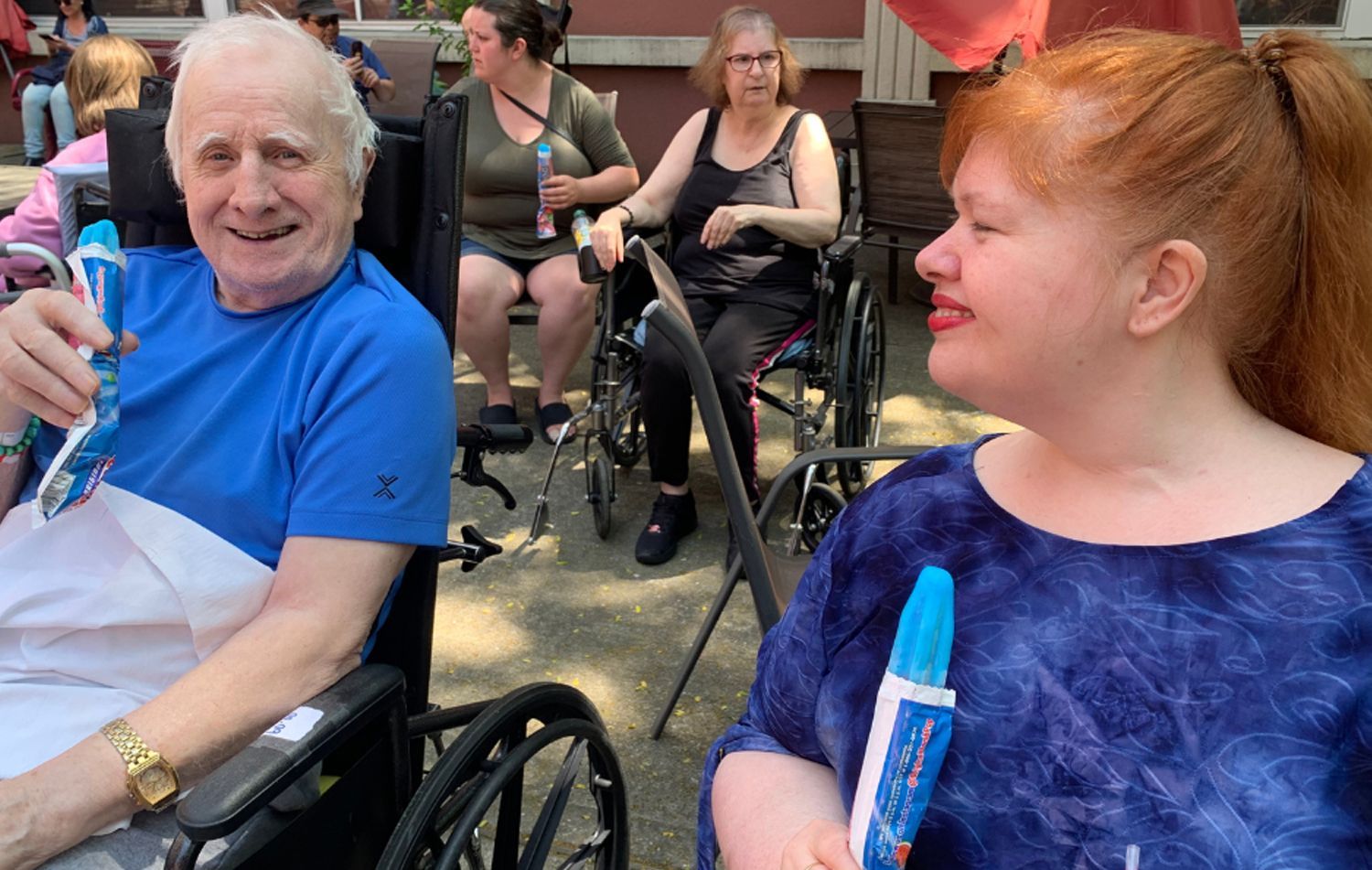
Introduction
Central Island Healthcare is delighted to unveil its steadfast commitment to ensuring the safety, comfort, and respect of all individuals who enter our esteemed building. We believe that fostering a strong support system for families, residents, and staff is paramount to creating a nurturing environment where everyone feels valued and cared for.
Empowering Decision-Making with Expert Guidance
One of the essential aspects of our support system is the help desk provided by Cona Elder Law, PLLC. Recognizing the importance of informed decision-making during the placement process, our help desk, manned every other Tuesday from 2:00 pm to 4:30 pm, offers specialized assistance in complex Medicaid eligibility and guardianship matters.
Extended Visiting Hours and Enhanced Experience
To enhance the visiting experience for families, Central Island Healthcare has extended its visiting hours from 10:00 am to 7:00 pm seven days a week. This extension not only allows more flexibility for families to visit their loved ones but also ensures a steady flow of available parking, reducing parking lot congestion.
Understanding that not all families can visit during regular hours, our Recreation Department assists with FaceTime calls to bridge the distance and create meaningful connections. Moreover, to celebrate special occasions, the Recreation Department is delighted to accommodate private family parties, fostering a sense of togetherness even in challenging times.
Furry Companions and Enriched Well-Being
Central Island Healthcare takes pride in being a pet-friendly facility, recognizing the positive impact of furry companions on residents' well-being. To ensure the safety and comfort of all residents and pets, vaccination proof for pets is required.
We encourage families to actively participate in the rich array of on and off-unit programs and special events we offer. The activity calendar of events can be found at the front lobby desk, ensuring families stay informed about the engaging activities available for their loved ones.
Open Communication: The Heartbeat of Exceptional Care
At Central Island Healthcare, we firmly believe that open communication is vital to providing exceptional care. To facilitate this, our Administrator, David Goldman, and Director of Nursing, Marly Bastien, keep their doors open round the clock to address any questions, concerns, or compliments from family members.
We also place great importance on listening to our residents. Every month, we hold family forum-style meetings where residents can voice their concerns and compliments. These meetings are attended by an assigned state representative, known as an Ombudsman, ensuring that residents' voices are heard and their rights respected.
Furthermore, our residents are educated on how to address formal grievances via our Grievance Officer, Kameca Balan, Director of Social Work. This process empowers residents to have a say in their care and ensures transparency and fairness in handling any issues that may arise.
Cultivating Community Roots
At Central Island Healthcare, community involvement is at the heart of our values. We proudly sponsor various community events, including the Spring and Fall Fest hosted by the Jewish Community Center in Plainview. As a testament to our commitment, the Plainview Chamber of Commerce has generously gifted us three deluxe beverage carts, enhancing our outdoor food serving efficiency during weekly patio BBQs and special events.
Central Island Healthcare also has a close community relationship with the AsaMai Hindu Temple, offering our South Asian resident population opportunities to engage in our Indian Culture program, which includes Henna art. This program supports and promotes our presence at the upcoming celebration of Diwali Mela at the AsaMai Hindu Temple this fall.
"Feeling is Healing": A Guiding Mantra
Our motto, "Feeling is Healing," guides us in providing care that treats every individual as part of our family. The quality of our services has led many of our residents to return, while visiting spouses also choose our facility for their medical needs, trusting in the care and compassion we provide.
Nurturing our Pillars: The Dedicated Staff
Central Island Healthcare understands the dedication and hard work of our staff. To show our appreciation, we offer sign-on bonuses, competitive salaries, and comprehensive benefit packages. We believe that a happy staff leads to better care, which is why we organize weekly BBQs, ice cream truck events, award ceremonies, and holiday catered parties to celebrate and support our incredible team.
Conclusion
Our unwavering pledge is to provide unparalleled care, unwavering support, and vibrant community engagement, collectively creating an environment reminiscent of home, where each individual is cherished. At Central Island Healthcare, we extend a warm embrace to all those seeking a nurturing sanctuary for their loved ones or themselves.
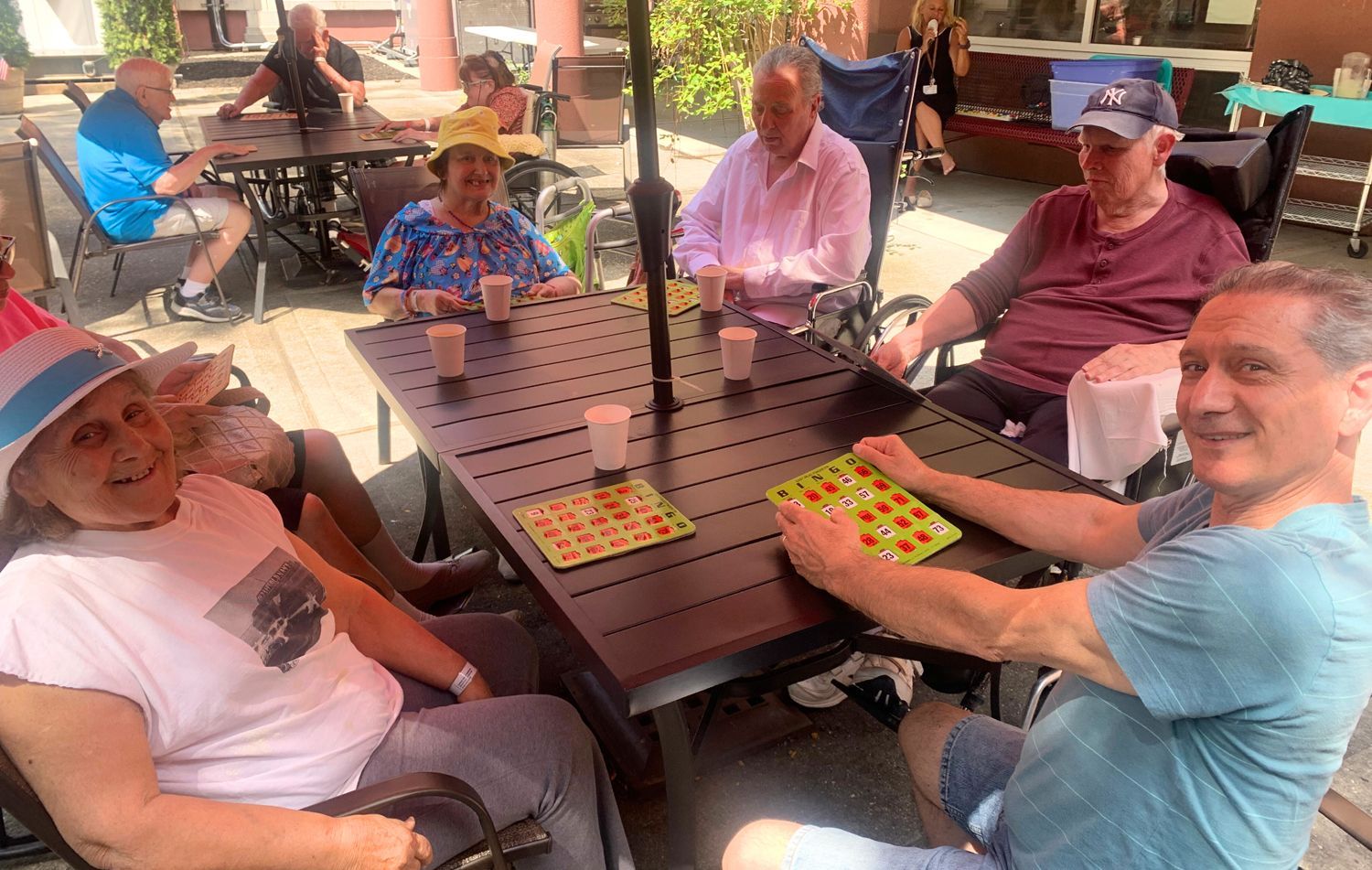
Introduction
As the population ages, nursing homes play a crucial role in providing care and support for elderly individuals who require assistance with daily living. While physical health is typically a primary focus in these facilities, the impact of mental health on the overall well-being of nursing home residents should not be overlooked. Promoting mental well-being is essential to ensuring a holistic and fulfilling life for seniors in long-term care settings. This blog delves into the significance of psychological support in nursing homes, exploring the services offered, emphasizing cognitive stimulation and social engagement, and recognizing the vital role of trained staff in addressing mental health concerns among residents.
The Link between Mental Health and Overall Well-being
Mental health significantly influences an individual's quality of life, and this is no different for nursing home residents. As people age, they may face various challenges, such as physical limitations, loss of loved ones, and changes in their living environment. These factors can contribute to the development of mental health issues, including depression, anxiety, and feelings of isolation. Left unaddressed, these conditions can negatively impact physical health, cognitive abilities, and social interactions, hampering the overall well-being of nursing home residents.
Psychological Support Services in Nursing Homes
Nursing homes have recognized the importance of addressing residents' mental health needs, and as a result, various psychological support services are being offered. These services are tailored to meet the unique needs of elderly individuals, providing them with the necessary tools to cope with the challenges of aging and transitioning to a nursing home environment. Some of the key psychological support services include:
-
Counseling and Therapy: Trained mental health professionals, such as psychologists, social workers, and counselors, play a vital role in providing individual therapy sessions for residents. These sessions offer a safe and confidential space for residents to discuss their emotions, fears, and concerns. By expressing their feelings and thoughts, residents can gain valuable insights into their emotions and receive guidance on coping strategies.
-
Support Groups: Group therapy and support sessions are highly effective in promoting psychological well-being. These groups allow residents to connect with peers who are facing similar challenges, fostering a sense of belonging and reducing feelings of loneliness. In support groups, residents can share their experiences, offer encouragement, and provide emotional support to one another, creating a supportive community within the nursing home.
-
Art and Music Therapy: Creative outlets like art and music therapy have proven to be powerful tools in promoting emotional expression and reducing stress among nursing home residents. Engaging in art or music-related activities allows residents to explore their creativity and emotions, leading to a sense of accomplishment and improved mood.
-
Reminiscence Therapy: This therapy involves discussing past experiences and memories. For nursing home residents, reminiscence therapy can evoke positive emotions and improve mood. By revisiting meaningful moments from their lives, residents can establish a stronger connection with their personal history and gain a sense of purpose and identity.
Importance of Cognitive Stimulation and Social Engagement
To maintain mental well-being, cognitive stimulation and social engagement are pivotal. Nursing homes must incorporate activities that challenge residents' minds and encourage social interaction. These activities not only promote mental agility but also enhance social connections and overall happiness. Some effective strategies include:
-
Brain Games and Puzzles: Regular engagement with puzzles, crosswords, and memory games keeps the mind active and sharp. These activities can also be enjoyed in group settings, encouraging socialization and healthy competition.
-
Educational Programs: Organizing seminars, workshops, and lectures on various topics keeps residents intellectually engaged and provides opportunities for them to learn new skills and knowledge. Educational programs not only stimulate the mind but also empower residents, giving them a sense of accomplishment and personal growth.
-
Group Outings and Events: Trips to local attractions, picnics, and social gatherings provide residents with enjoyable experiences and meaningful interactions with their peers. Social engagement outside the nursing home environment can reduce feelings of isolation and enhance residents' sense of connectedness with the community.
-
Intergenerational Activities: Interactions with younger generations, such as visits from school children or involvement in community events, can be highly beneficial for both the residents and the younger individuals. Intergenerational activities foster mutual understanding, reduce age-related stereotypes, and create a positive impact on mental well-being.

Introduction
As the world's population ages, the prevalence of dementia is on the rise. According to the World Health Organization, approximately 50 million people worldwide are living with dementia, and this number is projected to triple by 2050. Dementia is a progressive condition that affects memory, cognitive abilities, and behavior, making it challenging for individuals to perform daily tasks and live independently. As a result, individuals with dementia often require specialized care and support, especially as their condition advances.
Memory care units within nursing homes have emerged as essential facilities designed to meet the unique needs and challenges of residents with dementia. These units offer a safe, structured, and supportive environment, where individuals can receive the specialized care they need while maintaining their dignity and quality of life. In this blog, we will delve into the significance of memory care in nursing homes, exploring the distinctive requirements of residents with dementia, the purpose of specialized memory care units, person-centered approaches, and the importance of creating a safe and structured environment.
Understanding the Unique Needs and Challenges of Residents with Dementia
Dementia is a broad term that encompasses several neurological disorders, the most common being Alzheimer's disease. It is characterized by a decline in cognitive function, memory loss, and changes in behavior and emotions. The challenges posed by dementia can be overwhelming for both the individuals living with the condition and their families.
Memory loss is often one of the earliest and most noticeable symptoms of dementia. Individuals may struggle to recall recent events, names of family members, and everyday objects. As the condition progresses, communication difficulties can arise, leading to frustration and agitation. This, coupled with confusion and disorientation, can contribute to feelings of fear and anxiety in individuals with dementia.
Residents with dementia may also exhibit challenging behaviors, such as wandering, pacing, and increased agitation. These behaviors can be distressing for both the individuals themselves and the caregivers, making it essential to create an environment that ensures their safety and minimizes stress.
Specialized Memory Care Units within Nursing Homes: Their Purpose
Memory care units within nursing homes are specially designed wings that cater specifically to individuals with dementia. These units serve as a bridge between traditional nursing home care and more intensive skilled nursing facilities, offering a unique environment that is tailored to meet the needs of residents with memory loss.
The primary purpose of memory care units is to create a homelike setting that promotes a sense of familiarity and comfort for residents with dementia. This environment helps reduce anxiety and disorientation, allowing residents to feel more at ease in their surroundings.
In addition to creating a safe and supportive atmosphere, memory care units focus on providing specialized care and services that cater to the unique challenges of dementia. Staff members in memory care units undergo specialized training to better understand the disease and develop effective strategies for communication, behavior management, and activities of daily living.
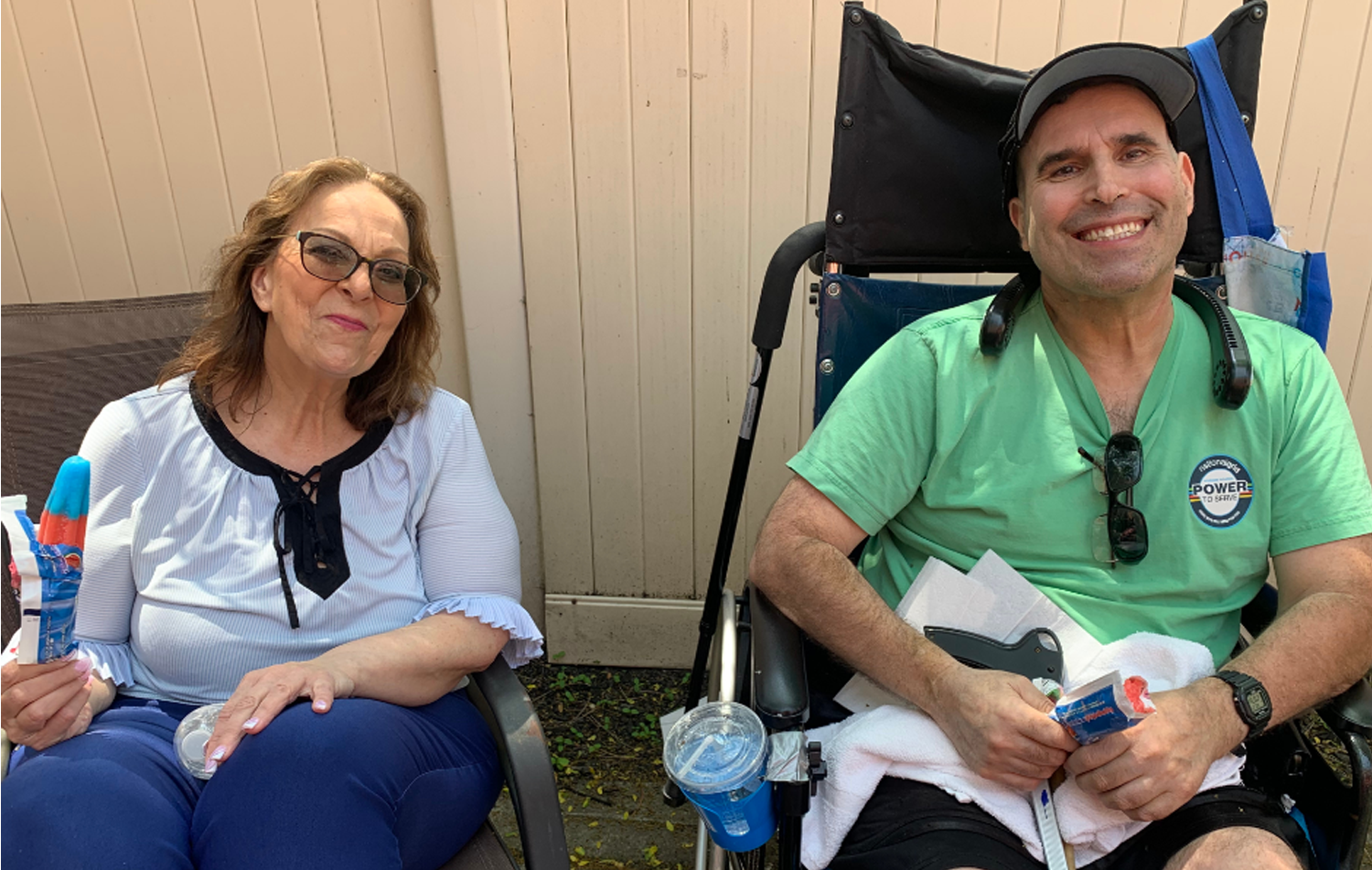
Introduction
In the realm of nursing home services, a transformative approach has emerged, focusing on the individual needs, preferences, and goals of residents. This approach, known as person-centered care, recognizes the unique identity and experiences of each person and aims to provide tailored and compassionate care. In this blog, we will delve into the concept of person-centered care, highlighting its importance in nursing homes. We will explore how nursing homes create individualized care plans, showcase examples of person-centered care approaches, and emphasize the significance of communication and collaboration in ensuring personalized care.
Understanding Person-Centered Care
Person-centered care is a philosophy that places the individual at the center of care decisions, acknowledging their rights, autonomy, and dignity. It involves a shift from a provider-driven model to one that empowers the individual, recognizing their expertise in their own lives. By adopting this approach, nursing homes prioritize the unique needs and preferences of each resident, fostering an environment that promotes their physical, emotional, and social well-being.
Creating Individualized Care Plans
To implement person-centered care, nursing homes develop individualized care plans for each resident. These plans take into account their specific needs, preferences, and goals, ensuring that care is tailored to their unique circumstances. Through comprehensive assessments, care providers gather information about the resident's medical history, functional abilities, personal interests, and social support systems. This holistic approach enables the creation of care plans that address not only medical needs but also emotional and social aspects of well-being.
By involving residents in the care planning process, nursing homes empower them to actively participate in decisions regarding their own care. Residents are encouraged to express their preferences, goals, and concerns, allowing care providers to align their services accordingly. For example, a resident who values independence may have a care plan that focuses on maintaining their functional abilities through physical therapy and assistive devices. In contrast, another resident who values social interaction may have activities and outings incorporated into their care plan to promote engagement and connection.
Examples of Person-Centered Care Approaches
Person-centered care manifests in various aspects of nursing home services, catering to different residents' circumstances. For residents with dementia, specialized care approaches focus on creating a supportive environment, incorporating familiar routines, and engaging in meaningful activities to enhance their quality of life. These approaches, often referred to as dementia care or memory care programs, prioritize maintaining residents' cognitive function, independence, and dignity.
End-of-life care is another area where person-centered care is essential. Nursing homes adopt a compassionate and individualized approach, ensuring that residents' end-of-life wishes are respected and honored. This may involve providing comfort measures, coordinating with hospice services, and involving family members in decision-making processes. By focusing on the resident's preferences, values, and goals, end-of-life care aims to provide a peaceful and dignified transition.
Rehabilitation services also embrace a person-centered approach. Whether it is recovering from surgery, stroke, or an injury, residents undergoing rehabilitation benefit from tailored therapy programs designed to meet their specific needs. Physical, occupational, and speech therapy are customized to the resident's goals and capabilities, promoting functional recovery and independence. The care team collaborates with residents to set realistic goals and provide ongoing support and encouragement throughout the rehabilitation process.
Copyright © 2023 Central Island Healthcare. All Rights Reserved.

